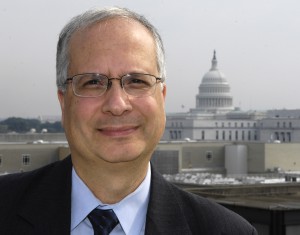By Ed Hoffman
Who is responsible for the knowledge that NASA creates?
Since being named NASA’s Chief Knowledge Officer (CKO) at the beginning of 2012, I have given this question a lot of thought.  Every center and mission directorate now has a CKO or point of contact who can speak to their organization’s approach to capturing and sharing lessons learned and best practices, tools and repositories, and other aspects of the trade. So there is a community of individuals with titles that indicate some responsibility for knowledge at NASA.
Every center and mission directorate now has a CKO or point of contact who can speak to their organization’s approach to capturing and sharing lessons learned and best practices, tools and repositories, and other aspects of the trade. So there is a community of individuals with titles that indicate some responsibility for knowledge at NASA.
But the circle of stakeholders is far broader than the individuals tapped with formal responsibility for knowledge. Mission success at NASA requires expertise in a wide range of disciplines beyond project management and engineering, including safety and mission assurance, acquisition, and human capital, to name a few.
Knowledge has always been the province of every practitioner. Knowledge is not a process or policy; it means a commitment to excellence based on daily decisions to share expertise, ask questions, collaborate with colleagues, and maintain vigilant commitment to continuous learning. It is also the search for innovation, technological and social.
Knowledge creation and sharing go on all the time among NASA’s 18,000 civil servants and tens of thousands of partners in industry and academia. Think of the dozens of lectures and brown-bag lunches that happen every day. The papers and conference talks. The wikis and posts on Yammer or Reddit.
There is no way a centralized knowledge organization could keep up with—let alone manage—the sheer volume of it.
In other words, knowledge thrives through our people and happens everywhere across the agency.
So what role should the CKO play?
I believe there are two important advocacy roles: facilitator and champion.
Facilitator. The CKO should leverage, nurture, and highlight formal and informal work happening across the agency. As I mentioned in an earlier column, it was eye-opening to learn of the sheer volume of ongoing knowledge activity when we convened representatives from the knowledge community for the first time in February 2012. Since then, we have begun a more formal process of mapping existing knowledge services at NASA’s centers and mission directorates. When complete, the map will provide a major tool for practitioners looking for critical knowledge. It will also help us identify gaps and set a forward-looking agenda that addresses some of the agency’s top strategic priorities, such as the shifting demographics of the workforce and the changing relationship with industry in human spaceflight.
Champion. The CKO should serve as the conduit between workforce and leadership to ensure the workforce has the tools and resources necessary to meet NASA’s most pressing knowledge challenges. This is a two-way street: the CKO should also raise awareness among the workforce of the importance of developing a knowledge mind-set. As with safety, all of us are responsible for NASA’s knowledge; the CKO is responsible for not letting the rest of the agency lose sight of that essential fact.
The CKO role is still evolving, but given NASA’s decentralized nature, facilitation and advocacy are foundational capacities that will help establish effective ways of working with the broadest possible range of stakeholders. These roles need to support the ultimate goal of having an organization that encourages reflective practitioners who openly and honestly share their ideas and the lessons they learn. In the end, a CKO’s influence is limited; we are each responsible for developing a knowledge mind-set. Our health as a learning organization depends on it.
More Articles by Ed Hoffman
- From The Academy Director Projects Built Around People and Networks (ASK 47)
- From The Academy Director NASA’s Knowledge Imperative (ASK 46)
- From The Academy Director The Appeal of Space (ASK 45)
- From The Academy Director Action at the Boundaries (ASK 44)
- On the Importance of Values (ASK 43)
- View More Articles





